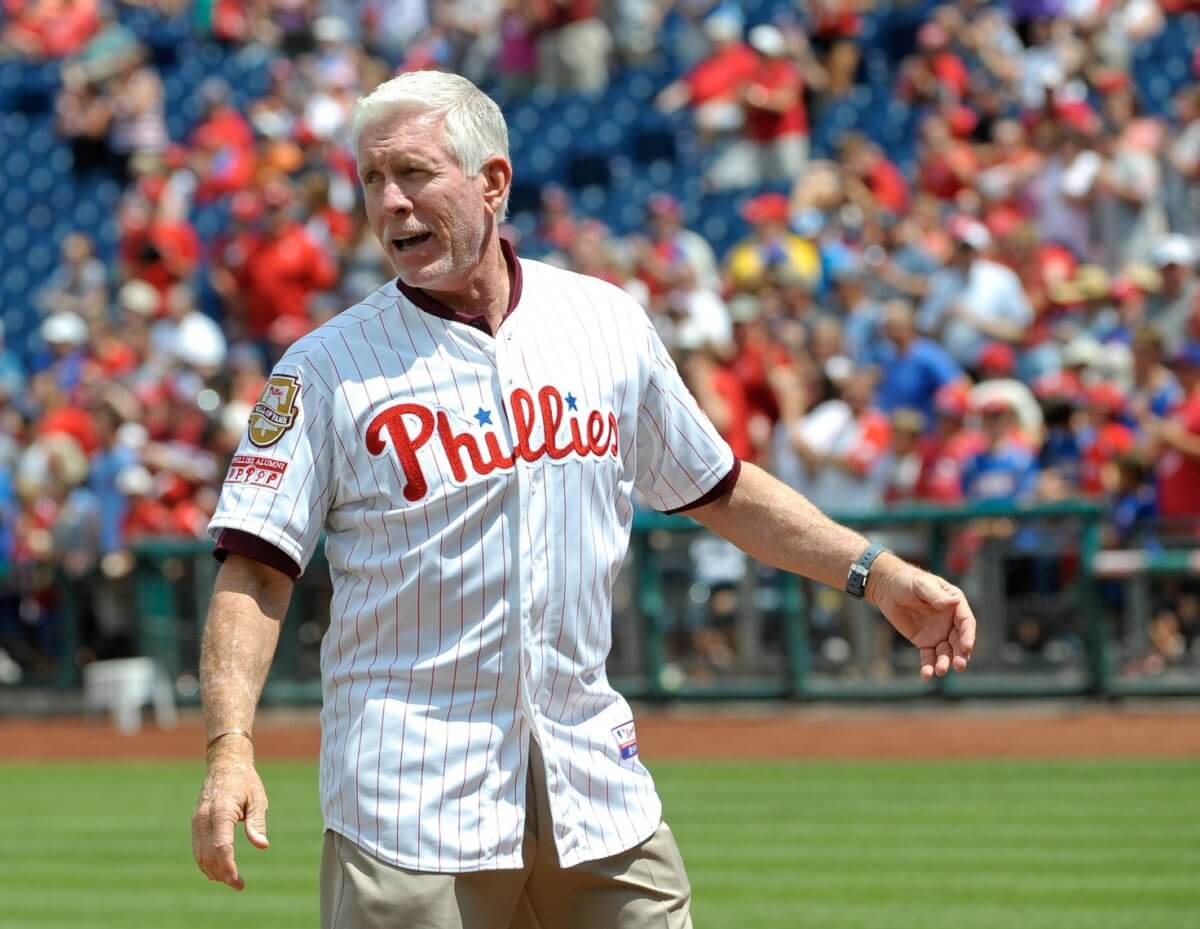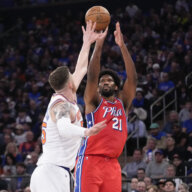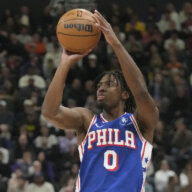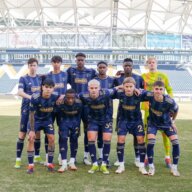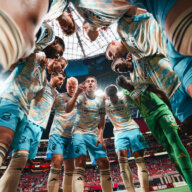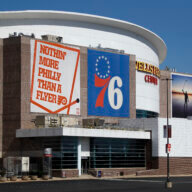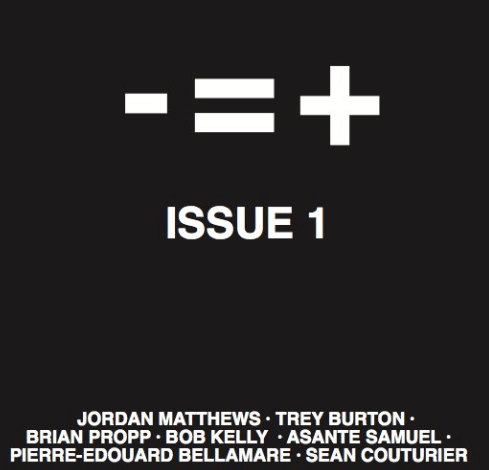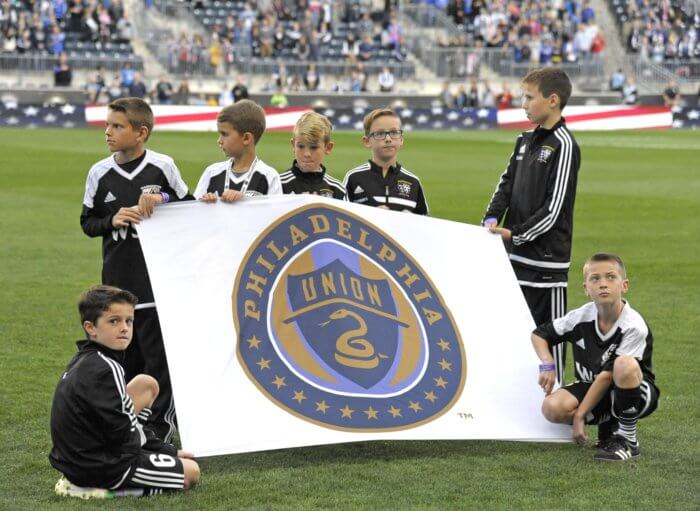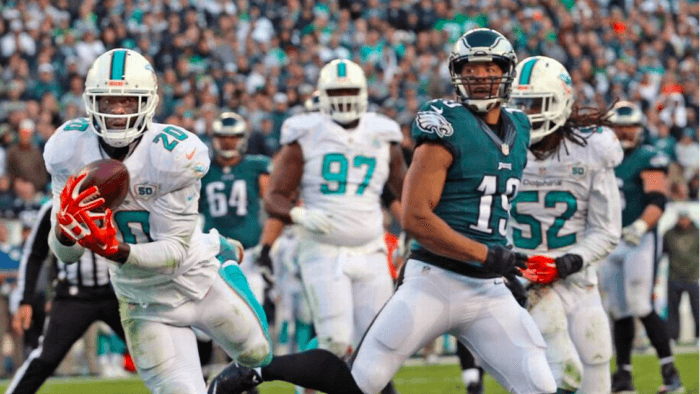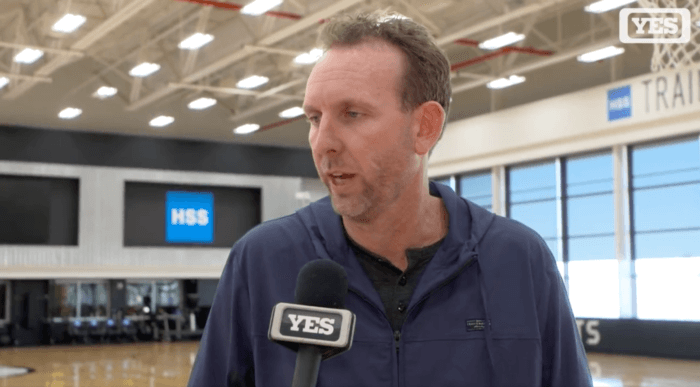As we all know by now, Hall of Famer Mike Schmidt told WIP’s morning show on Tuesday that Odubel Herrera was “not the type of player you build around.” That’s an arguable point, and one Phillies management obviously disagrees with, because Herrera is the only player they’ve signed through the 2021 season. If left at that, it might have been acceptable, but of course Schmidt couldn’t let well enough alone.
He went on to say, “It’s a language barrier. Because of that, I think he can’t be a guy that would sort of sit in a circle with four, five American players and talk about the game. Or try and learn about the game or discuss the inner workings of the game. Or come over to a guy and say, ‘Man, you gotta run that ball out.’ Just can’t be – because of the language barrier – that kind of a player.”
Then, what I believe to be the essence of what drove Schmidt to make his remarks came out. Michael Jack let it out that he would have hated to play against him in his day because of Herrera’s antics on the field. Schmidt said, “That’s the sort of stuff Ian Kinsler took heat for during the World Baseball Classic”.
This really seems to show the generational difference at the heart of the matter.
Before going any further, it must be noted that Herrera had no issue talking about how Schmidt called him personally to apologize – and for Herrera’s part, the apology may have been accepted, but he was sure to make a point worth making.
“I don’t agree with his comments, but I respect him as a player,” Herrera said. “I know he’s one of the greatest Phillies players of all time, but I don’t agree with his comments.
“It is disappointing because you never want to hear negative comments, but he called me, he apologized, and explained what happened. Everything is good. It’s really not as big of a deal that people are making it sound like.”
In actuality, despite how Schmidt characterized – or should I say generalized him – Herrera speaks and understands more English than people realize. But he prefers to do media interviews with the assistance of Diego Ettedgui, the team’s Spanish-language translator. Herrera, Galvis and Ettedgui are all from Venezuela and Spanish is their first language.
When asked if Herrera has ever had a problem communicating or interacting in the clubhouse, he chuckled.
“Zero,” he said in English.
This just may be the most important point in a nutshell. In today’s game, the locker room is very different from when Schmidt ruled the roost,
To Herrera’s credit (and I’ve been hard on Odubel’s attitude on the field) when he was asked more in depth about his conversation with Schmidt, a sense of maturity and a grasp of the situation seemed to surface. This is a sense that seemingly belies the outward “appearance” of Herrera’s actions on the diamond including not running out grounders, and – of course – the famous bat flip. This may be the kind of proof fans are looking for, if they allow themselves to think about it, that shows that a bat flip may, in fact, be nothing more than a bat flip after all and not some deep-seeded immaturity that we psychoanalyze like we are equipped to do such a thing.
I am guilty of this as well.
“I told him to calm down, that everything was OK and that I understood everything,” Herrera said through Ettedgui. “I actually told him that I still admire him as a player and that everything is all right. Quite frankly, I’m more focused on my game. I want to get better. I’m not thinking about it too much.”
And isn’t that EXACTLY the kind of mature comment we would want Herrera to say if he were to ask for our opinion?
For clarity and fairness’ sake, Schmidt also released a statement through the Phillies:
“It’s been made known to me that my answer on a radio interview this morning to the question, ‘Can the Phillies build a team around Odubel Herrera’ was disrespectful to Herrera and Latin players in general. I’m very sorry that this misinterpretation of my answer occurred and may have offended someone. I assure everyone I had no intention of that. Odubel is a dynamo on the field, and as he becomes more comfortable with the language, his leadership skills will improve, and no doubt he will be a centerpiece in the Phillies future.”
Let’s make it abundantly clear that Schmidt was a guy who had all sorts of Phillies fans questioning his leadership back in the day. With that said, let’s take him at his word and assume that he was simply trying to say, in a politically incorrect manner that he thinks it might be difficult for a Spanish-speaking player to communicate in a “leadership” role with the rest of his team, or, as he put it, “American players.”
The issue is where did Schmidt get his information from, faulty as it may be? Where might he have gotten this idea? Well, what is the reference point that all retired baseball players – whether Hall of Famers, or the forgotten masses – get their ideas from?
Well, that answer is quite simple.
They all played the game themselves, of course. But what some just can’t seem to get through their head is the fact that the times, they are always a changin’. After all, Schmidt played his last game in 1989. Since then, you have to figure that virtually every time Mike Schmidt has made an entrance anywhere, all anyone really wanted to discuss was what he did BEFORE 1989.
And while Schmidt has an important and very noteworthy off the field story of his own, having beat cancer in 2013, other than that, there isn’t a whole lot from the past 28 years that wasn’t directly related to what he did until he stopped playing. Twenty-eight years is a long time to have to relive what you did previously. It sets up a scenario, by the very nature of things that leads to players just reliving their playing days basically all of the time.
Hell, that is what we most ask of them after all, is it not?
With that being said, it’s not hard to assume the Schmidt is basically stuck in his mid-80s heyday. And if that’s the case, then we should look at what baseball was like when Schmidt played.
Take a look at 1981, Schmidt’s second of three NL MVP Award-winning seasons and almost certainly the best of his career. (His slash line was .316/.435/.644, all career highs. Had that not been a strike-shortened season, he just may have reached 50 homers, a mark he never did quite make it to.) That team, as a whole was excellent, with Pete Rose and Gary Matthews’ best season and a young Lonnie Smith, not to mention a pitching staff led by Steve Carlton, who threw 10 complete games in 24 total starts. The bullpen consisted of Sparky Lyle and Tug McGraw. The late Dallas Green was the manager. They were coming off a World Series Championship, so yeah; it was a damn good team.
Damn good, sure. But what they were most definitely not was diverse. On that roster, there were only two players – second baseman Manny Trillo (from Venezuela, like Herrera) and starting pitcher Nino Espinosa (from the Dominican Republic) – who spoke Spanish. Could Trillo or Espinosa have been a “leader” on that team? I’m sure each of those men had the capabilities as you don’t just show up coming from where they did to become high-quality Major League players without having a certain fire in your belly. But Trillo and Espinosa had to have felt different. There were just so many of those “American guys” like Schmidt, who may not have been compelled to learn their teammates’ native language. And who thought anything of it at the time? It was how it was back THEN. By all accounts Schmidt never once had an issue with any players who didn’t “speak the language”. But at the same time, what would be Schmidt’s motive to do so in a time with the world the way it was at that time? I contend it isn’t something that could possibly be considered a problem caused by Schmidt – or any of his contemporaries. How could it be when the Manny Trillos and Nino Espinosas of the world were – by all accounts perfectly satisfied by their station in America’s Game.
However, let’s take a look at the current Phillies roster – in the current world’s climate. You have Herrera from Venezuela, along with his fellow countrymen Freddy Galvis and Cesar Hernandez. Maikel Franco is from the Dominican Republic. Aaron Altherr can speak German, of all things. Hector Neris, Vince Velasquez, Joely Rodriguez, Edubray Ramos, Andres Blanco –it seems practically the whole future of this Phillies team, as currently constructed, speaks Spanish.
As a matter of fact, do you know what those “American guys” who Schmidt thinks are the only ones qualified to lead the team did? They went out and learned Spanish. Manager Pete Mackanin, the actual and technical leader of the team did as well. In fact, Mackanin can even conduct an interview in Spanish.
In summation, simply put – if Schmidt were a professional baseball player in today’s game, he would know this, and he would know how ridiculous the idea that a Spanish speaker couldn’t be a leader of a team is. The number of Spanish-speaking leaders of teams over the past decade is so large that it would be an effort in exhaustion to even begin a list of such players. This is an obvious and indisputable fact. Just ask the Astros, the best team in baseball by a huge margin. You think Alex Bregman doesn’t attempt to mimic every single thing Jose Altuve, Carlos Correa and Carlos Beltran do just because they grew up in different school systems? This is how baseball is, and has been for many years now. That doesn’t mean that all the work is done in this regard. But not to realize the changing landscape is the equivalent of having one’s head in the sand.
But the problem remains that Mike Schmidt isn’t a professional baseball player in 2017. He was a player in 1981. Such progress has been made since Schmidt was last in the trenches that, again, if you want to give him the benefit of every doubt, maybe he just doesn’t know. Or more than likely, Schmidt would himself, feel the need to perhaps learn Spanish himself.
Hopefully, this will turn into the start of a positive learning process for him. But whether or not you agree with what Mike Schmidt originally said, or you feel the need to ridicule Schmidt, the fact remains that baseball is a better, more diverse game, by a dramatic factor, than it was when Schmidt played. We can be thankful for that. While it is now up for debate whether Mike Schmidt truly knows better, it is clear that an overwhelming majority of people certainly do.
Mandatory Credit: Eric Hartline-USA TODAY Sports

